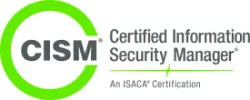What is Retail Cybersecurity Services?
Digital transformation is sweeping across all industries, and the retail sector has
shown some of the most dramatic changes. Traditional brick-and-mortar shops are
transferring their services to online shops and advancing into cloud computing along
with online payment technologies.
Digital transformation is sweeping across all industries, and the retail sector has
shown some of the most dramatic changes. Traditional brick-and-mortar shops are
transferring their services to online shops and advancing into cloud computing along
with online payment technologies.
With the advent of COVID-19 restrictions as well as the convenience offered by
online shopping, e-commerce has seen a significant rise, with almost 60 million
e-commerce users in the UK.
This digital retail landscape, however, poses a threat to retailers, making them
easy targets of a retail cyber attack. The retail sector experiences more breaches
than any other industry and faces a cyberattack every eight days. This makes it the
number one target for cybercriminals - meaning your business is at risk. As you
invest in technology to improve operations, you must also invest in retail security
solutions.
Read More +
Read Less -


































 310 reviews on
310 reviews on 



